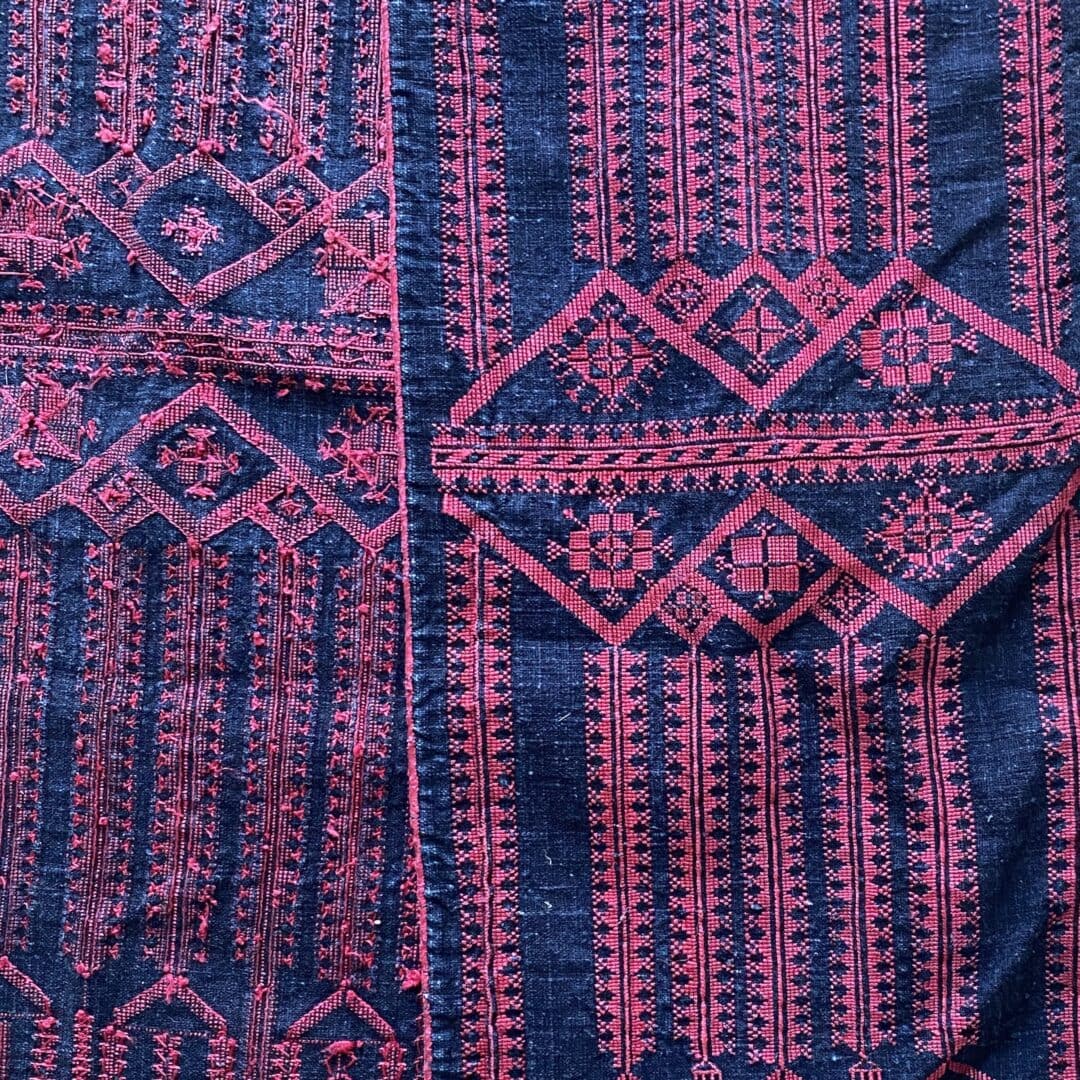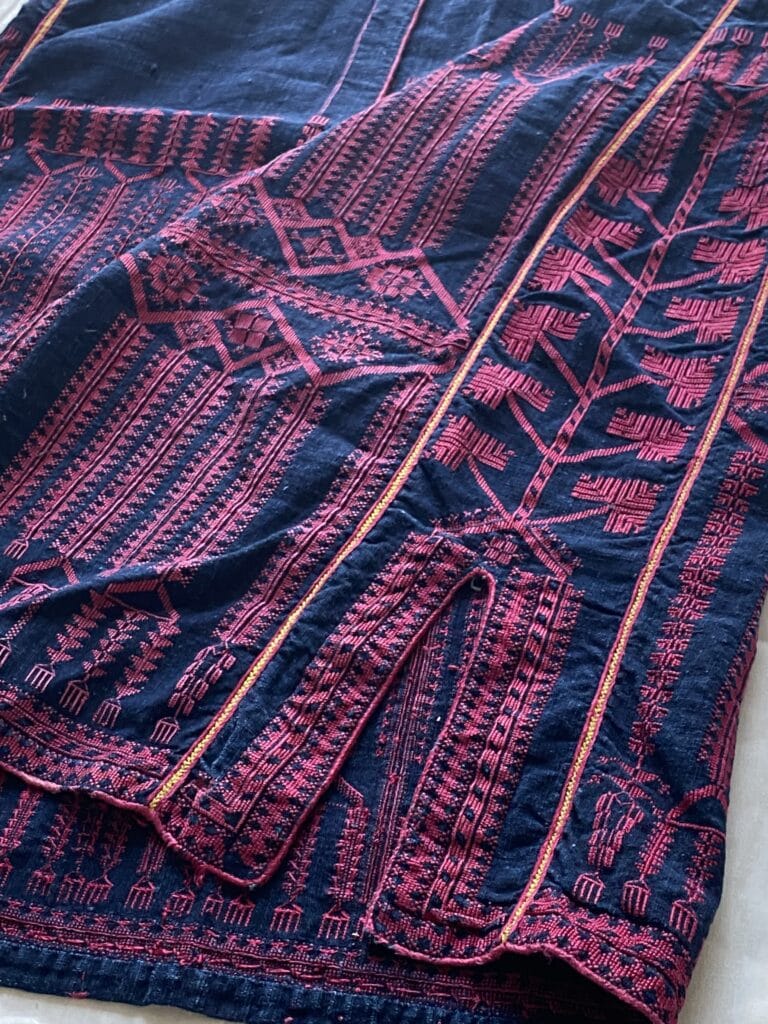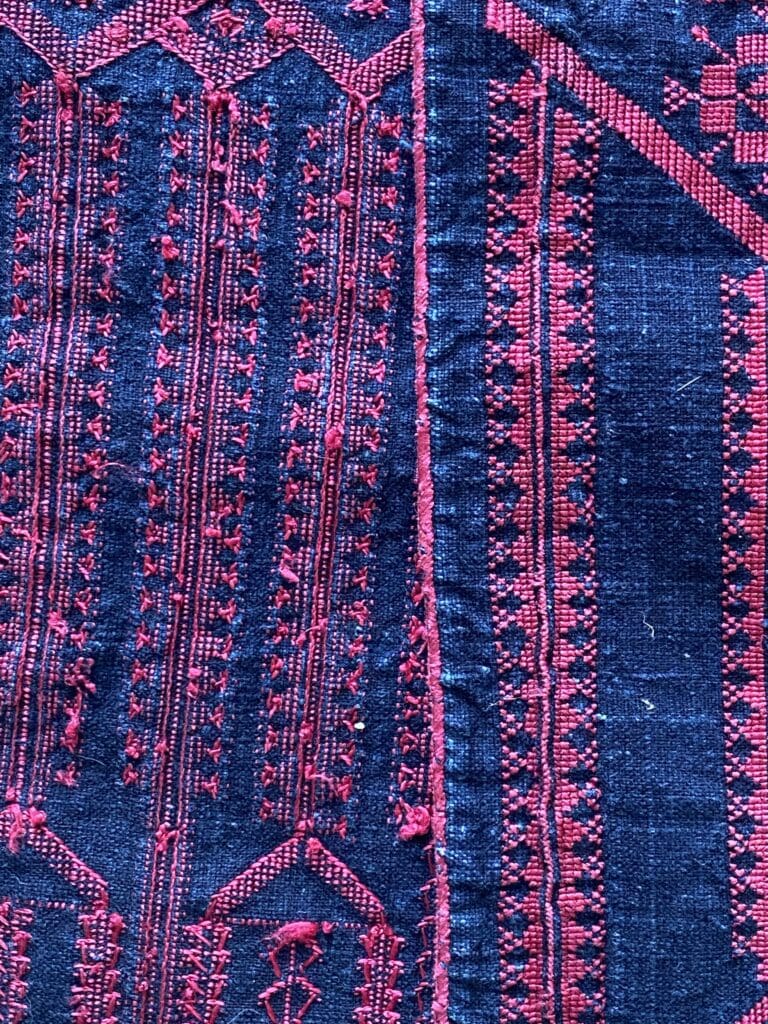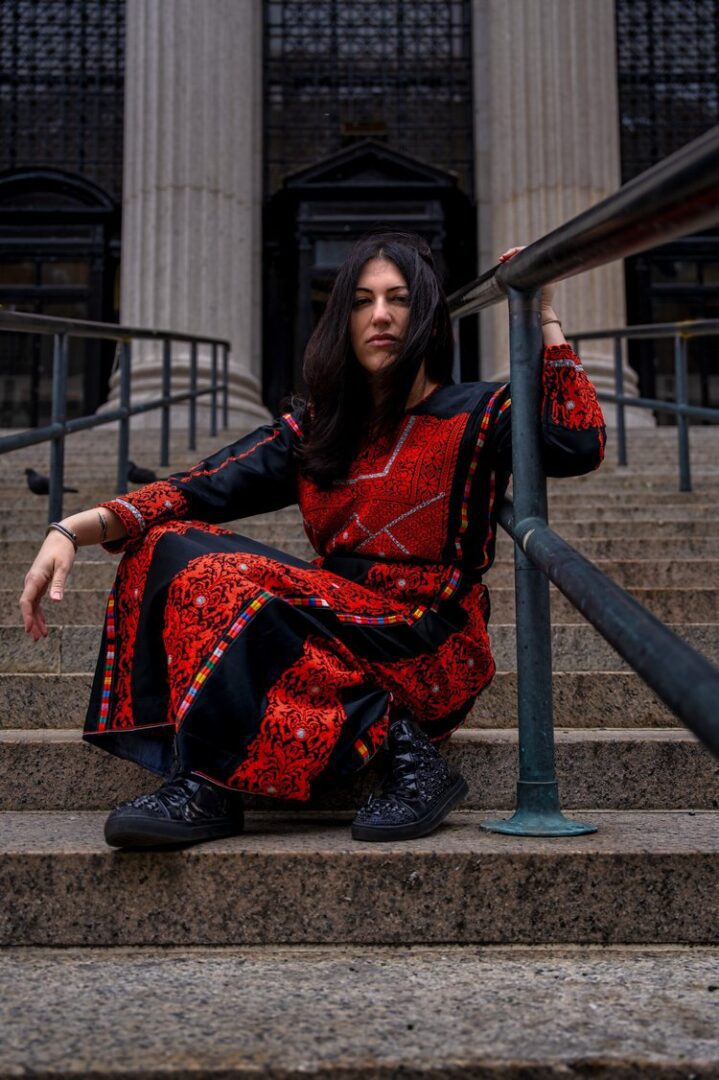


City dwellers, farmers and nomadic communities, whether Arab, Kurdish, Armenian, Turkish, Muslim, Christian or Jewish, all have made their unique contributions to the colorful mosaic of Syria’s arts and craft traditions. Textiles woven in silks using various striped, bold, vibrant and ikat patterns, have a centuries-old tradition in Aleppo, Hama, Homs and Damascus. Dresses, coats and jackets with various embroidery techniques of geometric patterns display the origins of the women who wear them. In this class, Wafa shares the endangered cross-stitch technique of Syrians who for many centuries have specialized in the ornamentation of dress. The class will revive the long lost textile traditions of Fortress of Simeon, Qalaat Samaan (قلعة سمعان), one of the oldest surviving churches located in northwest of Aleppo.
Dates
Thursday, January 23th, 2025
Time
12pm – 2:30pm EST
Location
Zoom, a link will be send to participants the day before class
Cost
$65 for the individual class, $350 for the series
*This session will be recorded. A link to the recording will be emailed to all those who register following the live session. This link is live for one month for you to watch at your convenience.
CLASS MATERIALS
- 11 or 14 count Aida Cloth
- Size 8 Pearl Cotton Thread, any shade of red, traditionally deep red (such as 814 or 498)
- Size 22-24 tapestry needle
- Embroidery scissors

Our Teacher
Wafa Ghnaim is a Palestinian dress historian, researcher, author, archivist, curator, educator and embroideress who began learning embroidery from her mother, award-winning artist Feryal Abbasi-Ghnaim, when she was two years old.
Her first book, “Tatreez & Tea: Embroidery and Storytelling in the Palestinian Diaspora” (2018), documents the traditional patterns and stories passed on to her by her mother. Wafa has since become a leading educator in SWANA dress history and embroidery techniques, as the first-ever Palestinian embroidery instructor at the Smithsonian Museum. Wafa continues her mother’s educational legacy through The Tatreez Institute (Tatreez & Tea), a global arts education initiative she began in 2016 teaching courses in Palestinian, Syrian and Jordanian embroidery techniques and lecturing at leading institutions, museums and universities around the world. The Tatreez Institute stewards a collection of over 180 dresses and headdresses from Palestine, Jordan, Syria, and Lebanon that were rematriated from households and shops across North America for the purpose of preservation, education, publication and research of intangible cultural heritage in the diaspora.
Wafa has since been featured in major media outlets, including Vogue Magazine, which named her and her mother “the world’s leading guardians of tatreez”. Her curatorial debut “TATREEZ INHERITANCE” (2023) at the Museum of the Palestinian People in Washington DC highlights traditional Palestinian dresses circulating North America and the importance of reclamation in the diaspora. Wafa released her second publication “THOBNA” (2023) to celebrate Palestinian embroidery as a powerful form of resistance over the past century. Wafa is currently the Curator at the Museum of the Palestinian People in Washington, D.C. and Research Scholar at The Metropolitan Museum of Art in the Department of Ancient Near Eastern Art.
